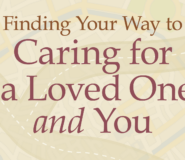Grief is a very personal and unique experience, no matter how many have been in a similar situation. Finding comfort and support is necessary for healing and ensuring you can be there for yourself and others you love.
- Take time to grieve and acknowledge the loss. Restricting yourself (or others) from expressing how much your loved one is missed limits your healing and robs the sentiment that this individual was special and worthy of being remembered.
- Look for ways to embrace the spirit or impression of your loved one, not just focusing on his or her physical presence.
- Celebrate the whole life of the individual and what he or she contributed collectively throughout the years. Look at pictures or videos to cherish beautiful moments, talk with family and friends about how that person positively impacted their lives and remember those stories still belong to you and your family and will live on as the memories are shared.
- Go deeper into your faith, beliefs or values to search for meaning and peace.
- Though quiet reflection is important, resist detaching yourself from your network. It may feel easier to avoid people, but the company of others can help you feel grounded and whole. Support groups also can provide context and fellowship.
- Reflect on your individuality. You may feel a loss of identity having been associated with your loved one. Even through spending much of your time with him or her or having the same friends, you contributed as an individual and still can.
- Engage in hobbies, passions and interests you enjoy—or seek new ones. These pursuits and activities can bring purpose, especially if you are experiencing a lack of direction.
- Ask for help, when needed. An unknown author said, “Sometimes asking for help is the most meaningful example of self-reliance.” People want to feel helpful at times like this. It’s part of their healing too. Don’t be afraid to accept their assistance or be reluctant to suggest tasks that, perhaps, can be done independently or remotely such as organizing meals, running errands, scheduling appointments on your behalf or updating others of your welfare.
- Seek professional counseling when grief overwhelms you to the extreme of severe guilt, separation anxiety, utter hopelessness, sustained agitation, acute physical pain, uncontrolled anger, substance abuse or suicidal thoughts.
Practice self-care. Your well-being matters to others as it should to you too..




